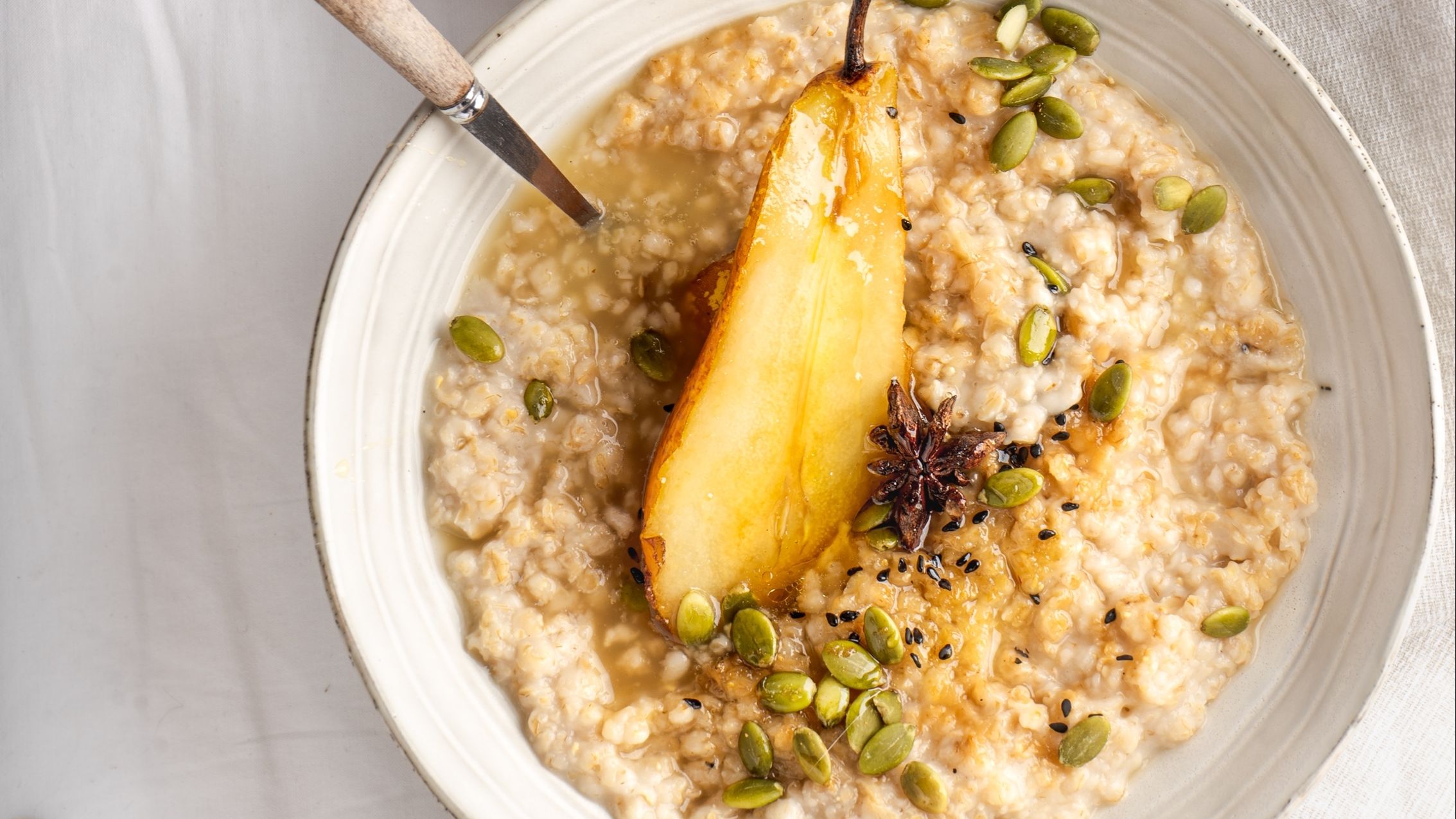Best Morning Oats for Perimenopause: What to Know for Gut and Hormone Health

Oats are one of the most comforting, and underrated, breakfast staples. They’re versatile, quick, and loaded with gut-friendly fibre. But when you’re standing in the cereal aisle wondering which oats to buy (quick, rolled, steel-cut?), it can be confusing, especially if you’re navigating perimenopause and looking to support your gut, energy, and hormone health.
Let’s break down what to consider when choosing oats, and how to turn your morning bowl into a hormone-friendly, gut-nourishing powerhouse.
Understanding the types of oats
Not all oats are created equal. Each type has its own texture, cooking time, and impact on your body, especially your blood sugar, energy levels, and gut function.
-
Quick oats: Pre-cooked and rolled thinner, these are the fastest to make. They still contain beta-glucan (the gut-friendly fibre), but the extra processing means they can spike blood sugar more quickly, something to watch during perimenopause when insulin sensitivity can shift.
-
Traditional rolled oats: A great middle ground. They’re steamed and flattened but still retain most of their nutrients and fibre. They cook faster than steel-cut oats but with better blood sugar regulation than instant types.
-
Steel-cut oats: The least processed option, with a hearty texture and lower glycaemic impact. They take longer to cook but deliver slow-release energy, ideal if you’re dealing with morning fatigue or trying to avoid the mid-morning slump.
-
5-grain or multigrain oats: These often combine oats with other whole grains like rye, barley, wheat, and millet, a great way to boost plant diversity, which supports your gut microbiome (and in turn, hormone regulation via the estrobolome).
Peri Tip: During perimenopause, hormonal shifts can slow gut motility and increase bloating. Choosing less processed oats can help regulate blood sugar and feed your gut bacteria, both key for managing symptoms.
Gut health benefits: resistant starch + fibre
Your gut thrives on prebiotic fibre, and oats deliver. They contain resistant starch, a special type of fibre that feeds the good bacteria in your gut.
Want more resistant starch?
-
Soak your oats overnight, this increases resistant starch content.
-
Eat them cold or at room temperature (like overnight oats).
-
Or cook them, then cool and reheat later, resistant starch increases when oats are cooled after cooking.
This matters more than you might think, a healthier gut microbiome can help your body recycle and clear excess oestrogen (via the estrobolome), a key part of hormone balance in perimenopause.
Heart and hormone support: beta-glucan
One of the standout nutrients in oats is beta-glucan, a type of soluble fibre that:
-
Helps lower LDL cholesterol
-
Slows digestion for more stable blood sugars
-
Supports longer-lasting energy and fewer mood crashes (yes, even that 10am irritability!)
Aim for: 3g of beta-glucan daily = around 1.5 cups cooked oats (¾ cup dry).
Gluten-free oats: what to know if you're coeliac or gluten-sensitive
Oats themselves don’t contain gluten, but they do contain avenin, a similar protein. Most people with coeliac disease tolerate avenin, but oats can often be cross-contaminated with wheat, rye, or barley.
If you're gluten-sensitive or coeliac:
-
Look for certified gluten-free oats
-
Always check with your healthcare provider or consider supervised testing
Make your oats work harder: gut and hormone-friendly add-ins
To turn your oats into a complete, gut-friendly meal, add a mix of:
-
Seeds: chia, flax, hemp (for omega-3s and fibre)
-
Fruit: berries, banana, apple (for antioxidants and prebiotics)
-
Protein: Greek yoghurt, soy yoghurt, or nut butter (to feel fuller longer)
-
Plant milk: choose calcium-fortified options, look for 120mg calcium per 100mL
Final thoughts
The oats you choose each morning can do more than just fill you up. With the right type (think less processed), the right prep (hello, overnight oats!), and some smart add-ins, you’re fuelling not just your energy, but your gut, heart, and hormone health.
So next time you reach for oats, remember: your morning bowl can help you feel more balanced, comfortable, and in control, exactly what every woman deserves during perimenopause.
Stay connected with gut health news and updates!
Join our Free Weekly Newsletter to receive the latest gut health news, recipes and updates from our team.

